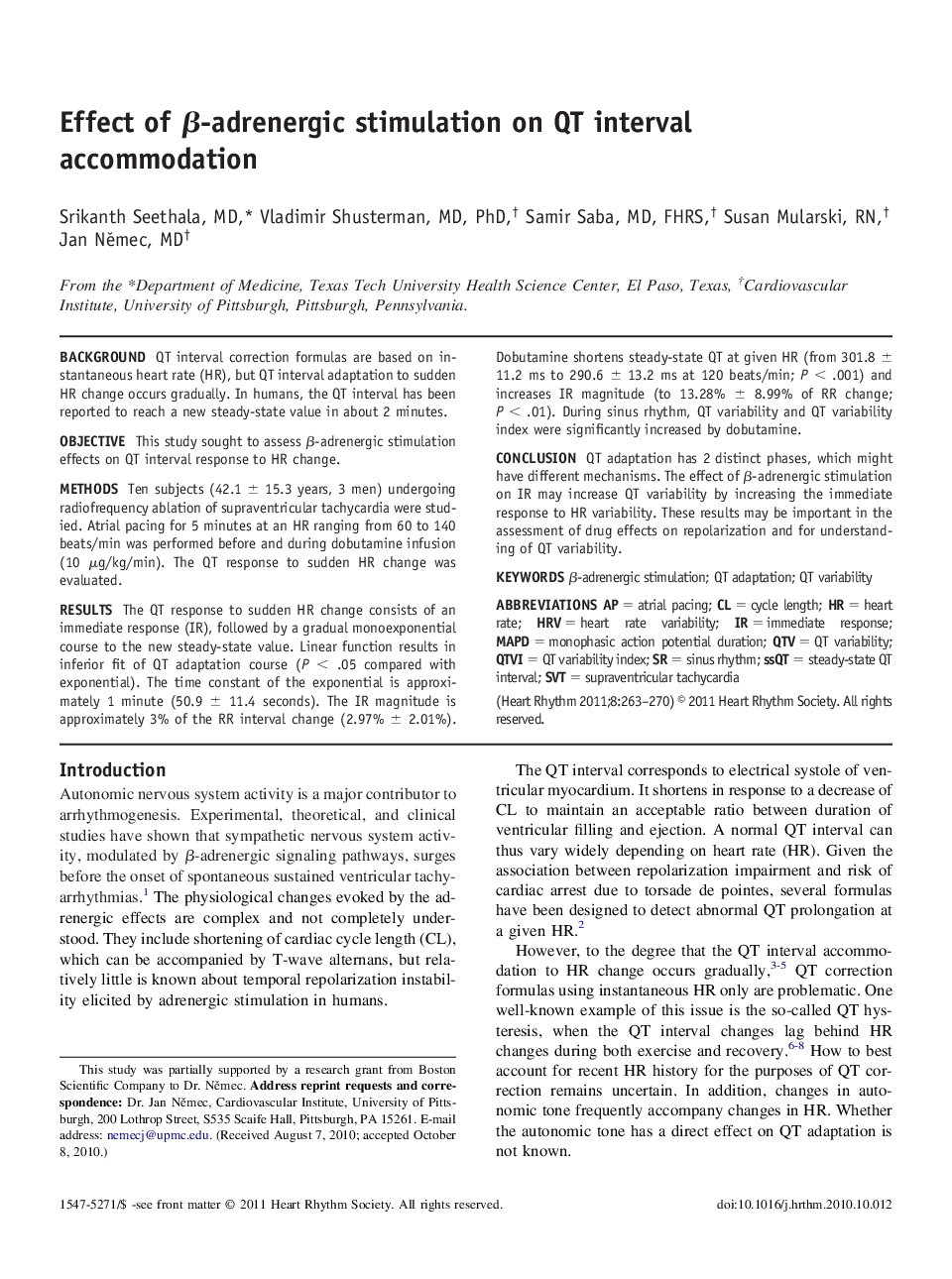| Article ID | Journal | Published Year | Pages | File Type |
|---|---|---|---|---|
| 2923267 | Heart Rhythm | 2011 | 8 Pages |
BackgroundQT interval correction formulas are based on instantaneous heart rate (HR), but QT interval adaptation to sudden HR change occurs gradually. In humans, the QT interval has been reported to reach a new steady-state value in about 2 minutes.ObjectiveThis study sought to assess β-adrenergic stimulation effects on QT interval response to HR change.MethodsTen subjects (42.1 ± 15.3 years, 3 men) undergoing radiofrequency ablation of supraventricular tachycardia were studied. Atrial pacing for 5 minutes at an HR ranging from 60 to 140 beats/min was performed before and during dobutamine infusion (10 μg/kg/min). The QT response to sudden HR change was evaluated.ResultsThe QT response to sudden HR change consists of an immediate response (IR), followed by a gradual monoexponential course to the new steady-state value. Linear function results in inferior fit of QT adaptation course (P < .05 compared with exponential). The time constant of the exponential is approximately 1 minute (50.9 ± 11.4 seconds). The IR magnitude is approximately 3% of the RR interval change (2.97% ± 2.01%). Dobutamine shortens steady-state QT at given HR (from 301.8 ± 11.2 ms to 290.6 ± 13.2 ms at 120 beats/min; P < .001) and increases IR magnitude (to 13.28% ± 8.99% of RR change; P < .01). During sinus rhythm, QT variability and QT variability index were significantly increased by dobutamine.ConclusionQT adaptation has 2 distinct phases, which might have different mechanisms. The effect of β-adrenergic stimulation on IR may increase QT variability by increasing the immediate response to HR variability. These results may be important in the assessment of drug effects on repolarization and for understanding of QT variability.
